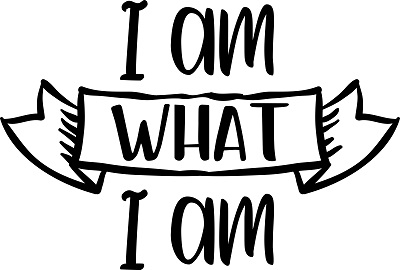 Many people in the world today are suffering a crisis of identity. The modern world is not at all conductive to a sense of purpose. Families live apart from each other. Marriage and relationships are not expected to last, or to produce descendants.
Many people in the world today are suffering a crisis of identity. The modern world is not at all conductive to a sense of purpose. Families live apart from each other. Marriage and relationships are not expected to last, or to produce descendants.
We work to put food in our mouths, not for joy or out of a sense of duty to our fellow man. We buy and consume all manner of products in a desperate attempt to feel as though we’re part of something, using clothes, phones, and cars to symbolize our status, or our belonging to a particular social group.
We skip from hobby to hobby, always consuming, never learning skills or developing ourselves intellectually. We have lost faith in religious order, government, and our fellow man.
But it turns out the problem isn’t in what we pursue in our lives as a nation, but as individuals. Many of the things mentioned above bring purpose to individual people’s lives, just not to everyone. One person may feel their life is full of meaning when they have two children, whereas another may find that children distract them from their love of the arts.
Likewise, in every possible source of meaning they are a million and one variables. One person who finds meaning in rearing children may be a parent, another may adopt or foster, another may become a teacher, another a pediatrician, another a writer for a children’s show or magazine.
Someone who finds meaning in the arts may be a creator, a historian, or even a collector or patron. No pursuit in life is automatically meaningful, no matter how deep and important it may seem to you, or to the people around you. No pursuit in life is automatically meaningless, no matter how aimless and idle it may seem to you, or to the people around you.
So how do we find meaning in our lives, when the things we believe will bring meaning, and the things we are told to do, may not be meaningful at all for us?
The Japanese Concept of Ikigai
The Japanese have a concept called “Ikigai”. The word is a combination of the words “iki”, meaning “life”, and “kai”, meaning “result”, or “worth”. The idea behind it is that there is something in your life, or something which could become a part of your life, that brings value to everyone and everything around you: yourself, your family, your community, and your environment.
This is your life purpose, your Ikigai, and when you find it you will have a reason to get out of bed in the morning, something you enjoy more than anything else during the good times, something to help you through the hard times, and something to provide a feeling of satisfaction at the end of the day, letting you rest well in your bed at night.
Some people find their Ikigai eventually, usually by accident. They become a parent, land a dream job, start travelling, write a book, find religion, or invent something, and suddenly realize that this is what they needed to do all along, that this is what they want to live and die for, that this is their contribution to the planet.
For most of these people, however, this discovery comes after years of soul searching, or even decades of aimless wandering. The vast majority of them will not find their Ikigai until they are in their forties or older, sometimes leading to unwanted commitments and a deep sense of regret about the past. And those are the people who find it.
Many more people never find their Ikigai, and struggle every day to find meaning in the little things around them, which often do not provide the sense of purpose they need.
The Four Meanings of Life – Love, Talent, Usefulness, & Profit
So how do we find an Ikigai? Well, first we need to start by finding the four meanings.
These four meanings are the cornerstones of your Ikigai, and all four need to be present. However, it is not as simple as leaping out and picking something with all four meanings. This is because each meaning needs to be discovered separately, being unique to the individual and their environment.
Discovering What You Truly Love – the Kondo Method for Life
If you have investigated purposeful, meaningful living, you have likely come across minimalism and the Kondo method. If you have not, then quite simply the Kondo method is a way of decluttering. You take every item in your home, ask yourself if it truly brings joy to your heart, and if not, you get rid of it.
Discovering the things you truly love is a similar approach. You write down a list of everything you are grateful for in life, then you go through with a fine tooth comb and ask yourself “could I live without this?” Naturally, you can live without many things. But if the idea of going without something or someone tugs at your heart, then you love it.
Discovering What You Do Well – Using Your Time Efficiently
This one involves a habit that can be dangerous when not done consciously: comparing yourself to others. You need to consider everything you do and scale it based on how well you do it. The point scale goes:
Can’t Do – Worse than Average – Average – Better than Average – Better than Most
The things you can do average or above are the most important, as these are things which you have the potential to develop into fine skills. However, the longer you have been doing something, the more likely it is your limit.
Something you do averagely after a week is therefore more likely to be a talent of yours than something you do better than average after a decade.
Discovering What the World Needs – The Charity that Builds Civilization
This one involves stepping completely outside your own personal interests. To discover what is useful and lacking in the world. Some things are lacking but not needed. Some things are needed, but available. Some things are lacking but we cannot provide them.
The point is to write out a list of things which are needed right now, whether or not you believe you can help them come to fruition. This is important on two levels. Firstly, it tells us what sort of a world we live in and what may be expected of us.
Secondly, it tells us what gaps there may be in the market for people with our skills and interests. Which leads us to…
Discovering What You can Profit From – Sustaining Yourself
This covers all possible sources of employment. Just log onto any job hunting website and read the listings in your area, even the ones which do not apply to you. These are the ways people can make money in your little corner of society. These are the ways in which you can sustain your own life.
You won’t be able to do all of them. Not all of them will be truly necessary, and therefore not all will be stable. Not all will be enjoyable. But that is what is available right now in terms of ways to support yourself.
So what can we do with these four life meanings? We must combine them, to find something greater than the sum of its four parts.
Action – The Combinations of Twos Add Value to Our Lives
Each of those individual lists of meanings is completely pointless without action. The refrain goes: “You are what you repeatedly do.” But you can’t repeatedly do something just because it is nice, you’re good at it, it’s needed, or it makes money. Very few of these things we can actually do.
In fact, the only one we can actually do at all is what we are good at. We cannot do something we love but can’t do, we cannot do something the world needs if we can’t do it, and we can’t make a profit from something we cannot do. And if being able to do something is all it has going for it, we will not be able to keep it up.
Imagine repeatedly doing the same thing over and over without anyone using it, without getting paid for it, and without enjoying it. Over time these pursuits become completely stale to us. So the only things we do are a combination of two or more meanings.
The Japanese theory of Ikigai breaks down the combinations into a mere four, not a full six, but the other two still exist and could be defined as the four virtues.
The Four Actions
The four actions defined by the concept of Ikigai are passion, mission, profession, and vocation.
PASSION is the combination of talent and love. When we combine talent and love, without use or profit, we find something that we can do, that we enjoy doing, but which does nothing for us socially or economically. It brings us joy and uses our skills, but nothing else.
MISSION is the combination of love and use. When we combine love and use, without talent or profit, we find something that we enjoy, that is needed, but which we cannot deliver upon. It is not of a high enough standard to help others, nor to make a profit for ourselves to live on.
PROFESSION is the combination of talent and profit. When we combine talent and profit we find something which we can do very well and make money off, but which brings us, and those around us, no joy. It has no security and no pleasure behind it.
VOCATION is the combination of profit and use. When we combine profit and use we find something which is needed and which we can live off, but which we do not enjoy and are not skilled at. As such we are unlikely to develop the skills in this field and are likely to quit or be replaced by someone more dedicated.
The Two Virtues
Secondarily, we have the combinations which we cannot always act upon, but which represent the ideals that civilization is built upon. These virtues are important for our emotional and spiritual health.
SELFLESSNESS is the combination of talent and use. Selflessness is a virtue because it connects us to others and brings society together. Nobody is useless to society, but not everyone is useful and capable all the time.
For example, Stephen Hawking is an amazing mind, but without the support of others we could never hear his thoughts. Or an intellectually different child may bring profound joy to her parents, but will always need the support of those around her.
By supporting each other, even if we gain nothing from it, we allow everyone the opportunity to give something to civilization, which benefits us indirectly by preserving our great societies.
SELFISHNESS is the combination of love and profit. Many people believe selflessness to be a virtue and selfishness to be its polar opposite, a hateful, hurtful behavior. However, selfishness is better defined as self-care. If we were selfless all the time, we would use all our time on charity, give away all our goods, and starve in a ditch.
There is always more need than we have resources to offer. Selfishness is that line in the sand where we provide for ourselves first, where we put on our own oxygen mask before helping others. And this virtue allows us to continue helping others for longer, to multiply our usefulness to society, and to build a society according to our own ideals.
However, neither the actions nor the virtues are your ikigai. They are good pursuits to have around the sides, but none of them is a good reason for living. Your ikigai has to add even more.
Our Emotions – The Combination of Threes is Where We Get Stuck
A combination of three meanings is often a plateau for people seeking a sense of purpose, and the longer it takes to get there, the more likely you are to stop at this final hurdle. These four combinations are so difficult to overcome because they genuinely bring us deep joy by stimulating our four positive emotions. However, we must move beyond the four positive emotions if we are to find our Ikigai.
The Four Emotions
Positive emotions can be so hard to create that when we find one, we may think of it as the Holy Grail and become highly defensive of it. Although all of these combinations are good for us, none of them provide a sense of true purpose or peace. It is important to find them, because they are essential to reaching our Ikigai, but we must not stop when we get here.
SATISFACTION is the combination of love, talent, and profit. When we do something we enjoy, are good at, and make money from, we tend to feel satisfied after a day’s work. However, the downside of this emotion is that it comes with uselessness.
As your actions are not needed, it is possible that your profit will be lost some day, setting you back to a passion. This uselessness leaves us seeking something more to connect us to humanity as a whole.
COMFORT is the combination of talent, profit, and use. When we do something we are good at, can make money from, which is needed, we tend to feel comfortable. However, the downside is that our life has little fulfillment.
We do not enjoy what we do, we just wake up every morning and do it, because we have grown used to it and because we are afraid that it is the best there is. This lack of fulfillment means that you are not happy, and this action cannot be your ikigai.
THRILL is the combination of profit, use, and love. When we do something we can make money from, which is needed, and which we love, we tend to feel excited. However, the downside of this emotion is that because we are not good at what we are doing, our future under this action is deeply uncertain.
We cannot rely on this action to sustain us forever. This uncertainty means that you are relying on luck to continue this action for your life, and it cannot be your Ikigai.
DELIGHT is the combination of use, love, and talent. When we do something which is needed and we love, and that we are good at, we feel a genuine joy, a natural high at being connected to our own wellbeing and that of others.
However, the downside is that we cannot profit from these actions, so we have no wealth. This leaves us in the position of relying on others, of not putting in as much as we take out, eventually building resentment on both sides: on theirs because you do not contribute, and on yours because you have no wealth.
The One and Only Ikigai
The reason so many people get stuck at the emotional hurdles presented by the combination of threes is because of how much hardship and sacrifice it takes to get there. We have learned throughout our lives that we discover meaning through trial and error.
We find a profession, or a passion, but we have to give them up because they do not provide us with all that we need from life. It can be very disheartening to find something satisfactory, or comfortable, and to realize that it still leaves a little void in our sense of purpose. However, this hurdle is actually the easiest to overcome.
Whereas in the case of meanings we cannot stick to one meaning on its own, and in the case of actions and virtues we cannot improve upon them, and must leave them behind, when it comes to the combination of three which leads to emotional fulfillment we don’t need to throw it out the window and try again.
Discovering our Ikigai is not a case of doing something completely new, but of tweaking and specializing the combination of three to add the final meaning to it.
For example, a teacher may love her work, be paid for it, and be good at it. But if her service is not needed it can lead to instability. She must therefore find an aspect of teaching which is needed, for example special education, private tuition, or simply teaching in an area where her skills are necessary.
Or a sculptor may be talented, providing creations that the world needs, and be paid for it, but feel empty as the art the world wants and needs is not what they wish to create. He must therefore find a client for his more personal, intimate works, someone who will buy the art he loves creating.
When you are that close to your Ikigai, it takes literally a single step to reach it. So, don’t settle for a pleasant emotion. Take that last step and find fulfillment.


